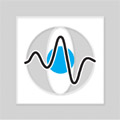Seminar Deep Learning Theory & Applications [SemDL]
Dates & Rooms:
Monday, 8:00 - 10:00; Room:
- The class takes place at Helmstr.1, 91054 Erlangen, 1. OG. at 8:00 - 10:00h.
- The preliminary meeting takes place at the 12th, October.
- To sign up for the seminar please write an e-mail to Vincent Christlein. Due to limited space, we can only have 10 participants (first come first served).
Deep Neural Networks or so-called deep learning has attracted significant attention in the recent years. Interestingly the concept of Neural Networks inspired researchers already over generations since Minky's famous book (cf. en.wikipedia.org/wiki/Society_of_Mind ). Yet again, this technology brings researchers to the believe that Neural Networks will eventually be able to learn everything. (cf. www.ted.com/talks/jeremy_howard_the_wonderful_and_terrifying_implications_of_computers_that_can_learn ).
In this seminar, we will investigate the basics of neural networks as already found in Minsky's design and expand on this on the advances to modern deep convolutional neural networks. In addition, we will also investigate open-source deep learning libraries and look into the newest results in literature.
Learning objectives and competences:
The students
- perform literature research based on a given scientific article
- independently study the topic based on the found literature
- present the given topic in a manner that is understandable for their peers
- get to know the requirements of a scientific talk at an international conference
- give a talk in English and gain language competence
- investigate state-of-the-art deep neural network libraries
Literatur:
- Representation Learning: A Review and New Perspectives, Yoshua Bengio, Aaron Courville, Pascal Vincent, Arxiv, 2012.
- Deep Learning, Yoshua Bengio, Ian Goodfellow, Aaron Courville, MIT Press
- Gradient-Based Learning Applied to Document Recognition, Yann Lecun, 1998
- Dropout: A Simple Way to Prevent Neural Networks from Overfitting, Srivastava et. al. 2014
- Greedy layer-wise training of deep networks, Bengio, Yoshua, et al. Advances in neural information processing systems 19 (2007): 153.
- Reducing the dimensionality of data with neural networks, Hinton et al. Science 313.5786 (2006): 504-507.
- Training Deep and Recurrent Neural Networks with Hessian-Free Optimization, James Martens and Ilya Sutskever, Neural Networks: Tricks of the Trade, 2012.
- Deep boltzmann machines, Hinton et al.
- Stacked denoising autoencoders: Learning useful representations in a deep network with a local denoising criterion, Pascal Vincent et al.
- A fast learning algorithm for deep belief nets, Hinton et. al., 2006
- ImageNet Classification with Deep Convolutional Neural Networks, Alex Krizhevsky, Ilya Sutskever, Geoffrey E Hinton, NIPS 2012
- Regularization of Neural Networks using DropConnect, Wan et. al., ICML
- OverFeat: Integrated recognition, localization and detection using convolutional networks. Computing Research Repository, abs/1312.6229, 2013.
- http://deeplearning.stanford.edu/wiki/index.php/UFLDL_Tutorial
- http://deeplearning.net/tutorial/
- Deep Learning Course on Coursera by Hinton
- DL platform with GPU support: caffe, lasagne, torch etc.


 +49-9131-85-27775
+49-9131-85-27775
 +49-9131-85-27270
+49-9131-85-27270
